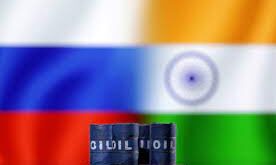Construction of the last section of the Nord Stream-2 gas pipeline in Danish territorial waters has been postponed.
Switzerland’s Nord Stream 2 AG, Gazprom’s 100 percent subsidiary, has no plans to start work on January 15, the day when Denmark’s permit for the beginning of the construction takes effect, Handelsblatt reported.
The reason for the delay is the necessity to “check the equipment,” the company spokesman said, adding that the exact date when the construction could begin can not be named.
“We probably won’t be able to specify when we will start laying the pipes until the end of January or the beginning of February,” he said.
On January 1, a new U.S. sanctions package came into force, extending restrictive measures to insurance, testing, compliance verification and certification services of the pipeline.
Shortly thereafter, the U.S. State Department sent out warnings to European participants to leave the project “before it’s too late.”
On Wednesday, January 13, it became known that the Danish engineering corporation Ramboll decided to withdraw from the project.
On January 3, the Norwegian certification and classification company Det Norske Veritas (DNV GL) had refused to participate in Nord Stream 2. The decision was made because of new U.S. sanctions that came into force on January 1, after Congress overrode President Trump’s veto of the bill.
Another package of restrictive measures prohibits, among other things, services for testing, verification or certification of the pipeline.
“DNV GL will stop all compliance verification activities of the Nord Stream 2 pipeline as long as the sanctions remain in force. We are implementing a plan to curtail our support for the certification of the project,” the company said in a statement.
In September, an international group of Protection and indemnity insurance of shipowners (The International Group of P&I Clubs) refused to work with Nord Stream 2.
The association, which represents 13 international maritime insurance clubs, said none of its members would provide insurance coverage to vessels involved in the pipeline’s construction.
Earlier, the Danish Maritime Authority reported that the Fortuna pipe-laying vessel and the Baltiyskiy Issledovatel and Murman vessels will start laying the pipes in Denmark’s exclusive economic zone from January 15.
The Fortuna ship left the German port of Wismar on Thursday afternoon, where it had been docked for the past two weeks. The Baltic Explorer supply ship returned to the construction area on 14 January

 Iran Energy News Oil, Gas, Petrochemical and Energy Field Specialized Channel
Iran Energy News Oil, Gas, Petrochemical and Energy Field Specialized Channel



